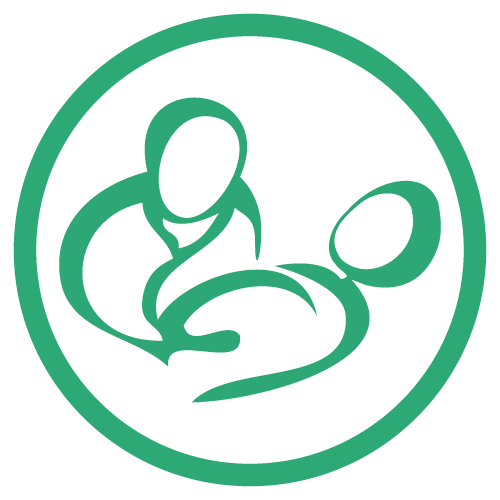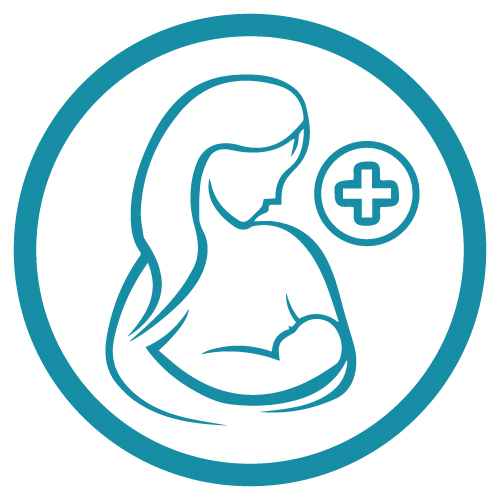 Pregnancy, Labour & Childbirth Online Course(s) & Continuing Education
Pregnancy, Labour & Childbirth Online Course(s) & Continuing Education
Access the latest clinical skills and research for Pregnancy, Labour & Childbirth for IBCLC/Lactation Consultants professional training. These Pregnancy, Labour & Childbirth online courses provide practice-changing skills and valuable perspectives from leading global experts. This Pregnancy, Labour & Childbirth education has been accredited for a variety of CEUs / CERPs and can be accessed on-demand, at your own pace.


Dr. Lesley A. Tarasoff is a Canadian Institutes of Health Research-funded Postdoctoral Research Fellow in the Department of Health and Society at the University of Toronto Scarborough. She is a leading scholar on the perinatal health of women with disabilities; Dr. Tarasoff is a co-author of the first known clinical practice guidelines on labour, delivery, and postpartum care for people with physical disabilities (see Berndl et al., 2021, JOGC) and of several systematic reviews and studies on the perinatal health outcomes and care experiences of women with disabilities in Canada. Primarily drawing on qualitative methodologies, her broader program of research aims to understand and address disparities and inequities in reproductive, perinatal, and mental health and health care experienced by often-stigmatized and marginalized groups, namely women with disabilities and sexual minority women. She holds a PhD in Public Health Sciences, with a Specialization in Women’s Health, from the University of Toronto. She is an advocate of midwifery care and even more so after the birth of her son in 2021.
Women with physical, sensory, and intellectual/developmental disabilities experience significant social, health, and health care disparities. Recent data show that their pregnancy rates are increasing. However, little is known about the perinatal health outcomes and care experiences of women with disabilities. In this presentation, I will provide an overview of research concerning the perinatal health outcomes and care experiences of women with disabilities, specifically highlighting findings from a National Institutes of Health-funded study conducted in Ontario, Canada.
From population-based health records data, we found that women with disabilities experience higher rates of perinatal health complications than women without disabilities. From interviews with women with disabilities and health and social service providers, including midwives, we identified barriers to optimal perinatal care for women with disabilities, including failures to meet accessibility and communication needs, with particular gaps in care identified in the postpartum period. This presentation will conclude with a discussion of implications for midwifery practice, identifying ways in which the midwifery model of care may best address the challenges experienced by women with disabilities during pregnancy, delivery, and the postpartum period; these include longer appointment times, the ongoing process of informed consent, home visits, and extended support in the postpartum period.
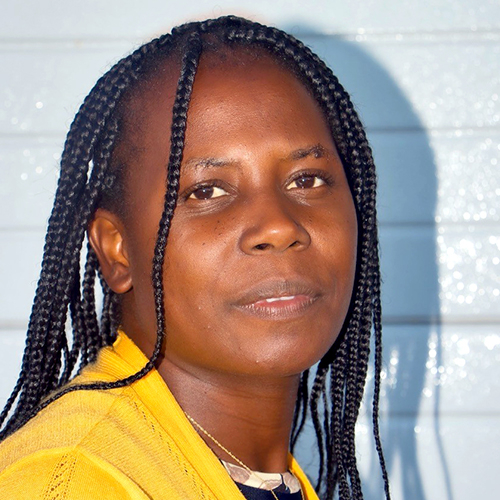

Sarah Mlambo is a registered Nurse and Midwife who has international and intercultural nursing and midwifery experience in both the public and private sector. She has several qualifications from Zimbabwe, Namibia and South Africa. Sarah Mlambo is currently finalising her PhD where she focusses on a model for midwives in the facilitation of childbirth-choices. She is a published author and Midwifery educator in Namibia.
“Incomplete, inaccurate, biased or unavailable patient education, resources and lack of opportunity for pregnant patients to have meaningful conversations with their healthcare providers about their individual care” (Stirling, Vanbeisien & McDougall, 2018, p. 13) is a major setback when women are being facilitated with childbirth-choices. Initiating the facilitation of childbirth-choices early in pregnancy gives the woman some time to weigh the options and for the healthcare provider to clear any misconceptions relating to childbirth types, yet this is a largely un-investigated area of concern in Namibia.
Improving the outcomes for women to have a positive childbirth experience and ensure that the SDG 3 of health for all is achieved exploring the experiences of women and that of midwives was important to ensure the former. Taking into consideration the Universal Rights of Childbearing women and Respectful maternity care (RMC) with a special focus on two of the rights which are “right to information, informed consent and refusal and respect of her choices and preferences, including the right to her choice of companionship during maternity care &” and “right to liberty, autonomy and self-determination and freedom from coercion”. This presentation will contextualize the experiences of women and midwives alike in the facilitation of childbirth-choices. A developed model that will help midwives in the facilitation of childbirth-choices for a positive childbirth experience for women and their families.
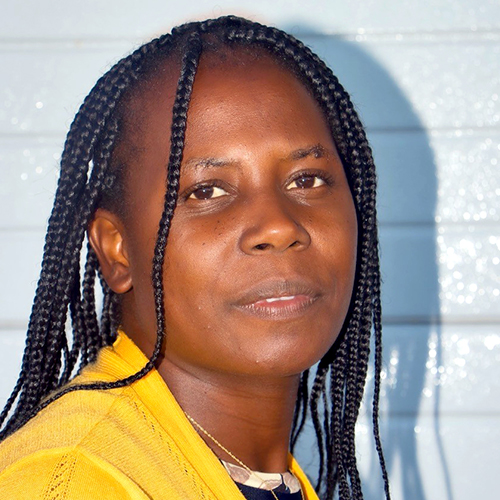
View Details / Enroll
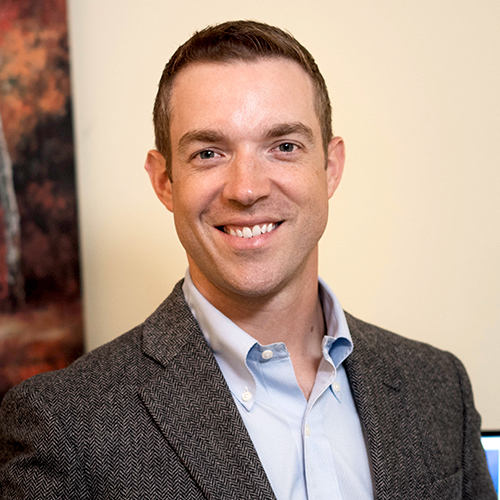

Dr. Andrew Dorough is a native of St. Louis, Missouri. He attended Westminster College in Fulton, Missouri, and graduated with a Bachelor of Science in biology. He then earned his Doctor of Chiropractic Degree from Logan College of Chiropractic in St. Louis, Missouri. He later earned a post-graduate certification from the International Chiropractic Pediatric Association (CACCP). He is qualified to deliver highly skilled and safe treatment to pregnant and postnatal patients and to neonatal and infant patients. Dr. Dorough enjoys providing collaborative care. He currently works in a family medicine clinic which boasts a breastfeeding medicine physician IBCLC, along with other IBCLCs, two nurse practitioners and a physician assistant. He assesses and treats infants with various forms of structural issues, including but not limited to cranial bone deformation (plagiocephaly), torticollis, and tongue and neck dysfunction, as related to feeding difficulties and infant well-being.
Topic: Collaborative Care With a Chiropractor for Infant Feeding Dysfunction - [View Abstract]
The perinatal period along with labor and delivery, is complicated and miraculous. The midwife and chiropractor are in a unique position to honor and assist this miracle and process. This presentation will delve into how midwives and chiropractors can work collaboratively to improve outcomes for clients. Learn about how the Webster technique is specifically designed to prepare the birthing person for an optimal and less stressful experience during their labor and delivery. The attendees will better understand how to find a chiropractor who practices webster technique and how to explain this type of care to the birthing person they are working with.
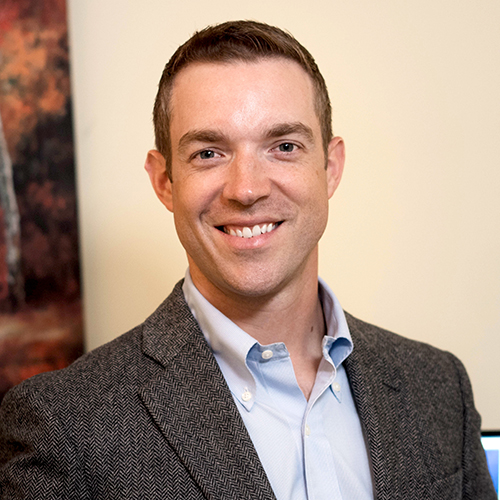
View Details / Enroll
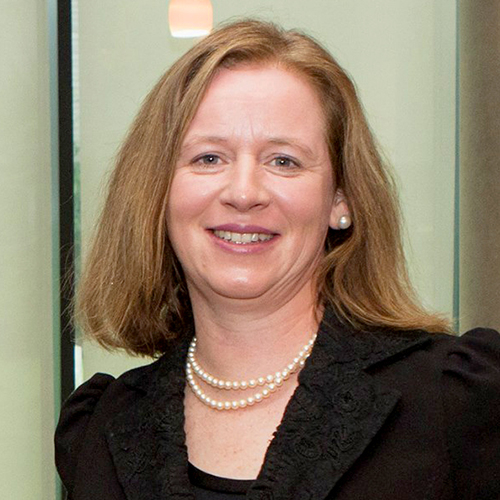

Dr Sylvia Murphy-Tighe is a midwife, public health nurse and Lecturer in Midwifery at the Department of Nursing and Midwifery, University of Limerick, Ireland. Her research interests include vulnerability, maternal and infant health and community engagement. Her doctoral research was funded by the Health Research Board Research (Research Training Fellowship), and defended her PhD in 2017. She developed a grounded typology of concealed pregnancy in order to increase understanding of this phenomenon. She has brought The Spaces Between Us Visual Art Exhibition to Ireland from Australia in order to raise public awareness of concealed pregnancy and the tragic outcomes that can ensue and her research has featured in radio & TV interviews. Dr Murphy-Tighe has many practice-based links to maternity and community-based nursing and NGO services. She is a co- investigator on the PART-IM project (UL) which is a participatory health research projects involving migrants and is currently leading a pilot study of a training programme involving community nurses enquiring about domestic violence and abuse. She is also an active member of @CA18211 Devotion an EU COST Action working on birth related trauma and PTSD. Additionally she is supervising masters and doctoral researchers in the area of perinatal mental health. Dr Murphy-Tighe has several ISI publications https://www.researchgate.net/profile/Sylvia_Murphy_tighe and is a member of the Health Research Institute at the University of Limerick.
Concealed pregnancy is a contested issue and ambiguity relating to definitions has hindered practice/policy developments. This presentation aims to assist participants understanding of concealed pregnancy. A range of terms have been used such as concealed, denied, disavowed, negated, cryptic, rejected and secret pregnancy. Women who experience a concealed pregnancy are sometimes pathologised or demonised, with reductive definitions characterising them. Research and practice surrounding concealed pregnancy predominantly privileges the views of professionals. The literature generally approaches concealed pregnancy from a biomedical perspective with links made to mental illness (Murphy Tighe and Lalor 2016a) yet research into neonaticide found psychopathology was rare. Concealed pregnancy is a fearful and traumatic experience with lifelong consequences which must be fully understood as some women are paralysed and unable to access healthcare if they have experienced early life traumatic/abusive experiences. This presentation draws on research funded by the Health Research Board, Ireland. Data includes interviews with thirty women who experienced a concealed pregnancy, as well data from twenty two cases of public interest drawn from media reports, serious case reviews into infant deaths and interactions with professionals. Contemporary cases will be used and vignettes from women will provide context to the evidence based literature on concealed pregnancy.

COVID-19 Guidance for Maternal and Newborn Care: Who’s Doing What and Why

Karleen Gribble (BRurSc, PhD) is an Adjunct Associate Professor in the School of Nursing and Midwifery at Western Sydney University.
Her interests include infant and young child feeding in emergencies, marketing of breastmilk substitutes, parenting and care of maltreated children, child-caregiver and caregiver-child attachment, adoption reform, and treatment of infants and young children within the child protection, immigration detention, and criminal justice systems.
She has published research on these subjects in peer-reviewed journals, provided media commentary, contributed to government enquiries, provided expert opinion for courts, and engaged in training of health professionals, social workers, and humanitarian workers on these subjects.
Karleen is an Australian Breastfeeding Association Community Educator and Breastfeeding Counsellor. Since 2010 she has been a member of the Infant and Young Child Feeding in Emergencies Core Group and has been at the forefront of the development of policy, training and research in the area of infant and young child feeding in emergencies.
Topic: Infant and Young Child Feeding in Emergencies: Background, Best Practice, and What You Can Do - [View Abstract]
Topic: Milk Sharing: Comparative Risks and Biomedical Ethics - [View Abstract]
Where women are suspected or confirmed as having COVID-19, hospital practices have ranged from isolating infants from their mothers and proscribing the provision of expressed breastmilk to supporting mothers to have skin-to-skin with their infants, early initiation of breastfeeding, direct breastfeeding, and rooming in day and night.
This presentation will briefly summarize the evidence base for breastfeeding and close mother-infant contact in the COVID-19 pandemic. It will also describe the variance in government and professional development guidance around the world, anomalies in guidance, which guidance documents have had the most influence internationally, and provide examples of good and poor practice in guidance development. Finally, this presentation will discuss the importance of emergency planning for infant and young child feeding and the need to learn from the mistakes of the COVID-19 pandemic.

View Details / Enroll
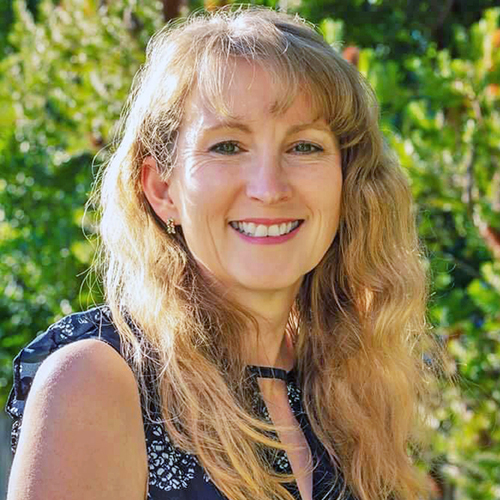
View Details / Enroll
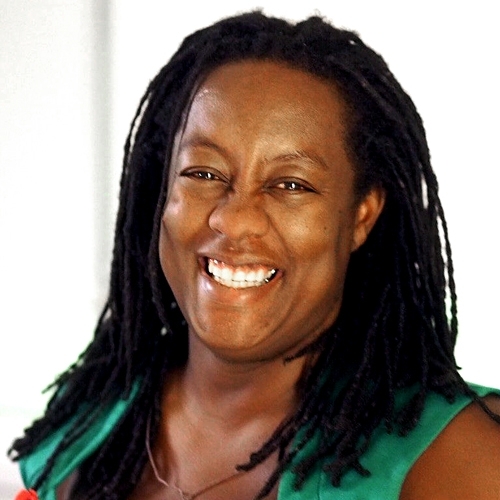

Award winning doula and birth activist Mars Lord has been a birth keeper for well over a decade. After attending the Paramana Doula course with Michel Odent and Lilliana Lammers, a spark was lit within her and the passion that she discovered for birth and supporting parents has fired her soul ever since. She has had the privilege of working with hundreds of families. A birth activist, with a desire to see the ‘colouring in of the landscape of birth’ and finding out the reasons for the maternal and neonatal morbidity rates amongst the BAME community, Mars created Abuela Doulas a doula preparation course primarily, but not exclusively, for women of colour. Her desire for reproductive justice led to the creation of the ‘Reproductive Justice Retreat’. Mars was recently recognised in the Mayor of London's Hidden Credits campaign and continues to speak out for cultural safety and reproductive justice.
Topic: The Importance of Black Birthkeepers - [View Abstract]
There is an urgent need for all health care providers to be well versed in cultural humility and cultural safety during pregnancy and birth. This presentation will explore these concepts in the context of providing labour support, and provide a detailed look at what cultural humility is, why we should practice it and the consequences when we don’t, along with practical information about how to practice cultural humility and the beautiful changes that happen when we approach labour support with an open mind and heart and the intention to be aware of our own biases in order to provide culturally safe care.

DANCING FOR BIRTH™ — A Powerful, Evidence-Based Birth Method to Improve Birth Satisfaction

Stephanie Larson is the visionary creator and founder of Dancing For Birth™―the powerful class which combines prenatal/postnatal fitness, childbirth education, and sacred celebration and has become a global sensation as the ‘trifecta’ of birth preparation. Over 20 years ago Stephanie instinctively ‘danced-out’ her first child in an empowering and euphoric four-hour birth. Upon hearing her peers’ stories of their traumatic births, she felt called to change the status-quo and bring a radically different birth method to parents and the professionals that serve them. Now, Certified Dancing For Birth™ Instructors on four continents educate and mentor parents on an ongoing weekly basis from pre-conception through postpartum (including baby). With each dancing labor, and the resulting connection to body, baby and bliss, birth is being transformed from fear, pain and trauma to power and pleasure.
A world-renowned expert on utilizing movement, instinct and gravity to support easier birth, Stephanie’s appearances include LAMAZE, ICAN, DONA, CAPPA, CIMS, ICEA, AWHONN, CBS, NBC, Fox and ABC. She was voted USA’s National Birth Hero by the birth community (One World Birth Award). Stephanie is the executive producer of the DVD “Prenatal Dance and Birth Wisdom.” She’s a mom of four who calls for an end to forced lithotomy position and a global shift to primal, powerful, euphoric birth and conscious parenting. Reach Stephanie at [email protected]
Birth satisfaction is an important measure of the quality of perinatal care and is pivotal in creating a positive birth and postpartum experience. How can we maximize it? Dancing For Birth™ is a perinatal class for parents and a birth method created to diminish labor pain, increase birth satisfaction and empower the birthing family. It is also an advanced training for perinatal professionals, providing the philosophy and practical skills necessary to support this mode of birth, including original techniques based on Dancing For Birth’s principles of movement, gravity and instinct. The ‘new sensation’ we’re now witnessing of birth dance going global and labor dance videos going viral has been 20 years in the making. Far from a trend, it’s indicative of the future of birth, in which freedom of movement and birth position of choice are paramount. In this interactive session with founder, Stephanie Larson, we’ll be introduced to Dancing For Birth™, its origin and efficacy. We’ll practice moves that encourage fetal rotation and descent while naturally increasing comfort. We will address the evidence regarding dancing during labor, and we'll explore the factors that make dance so transformative for birth.
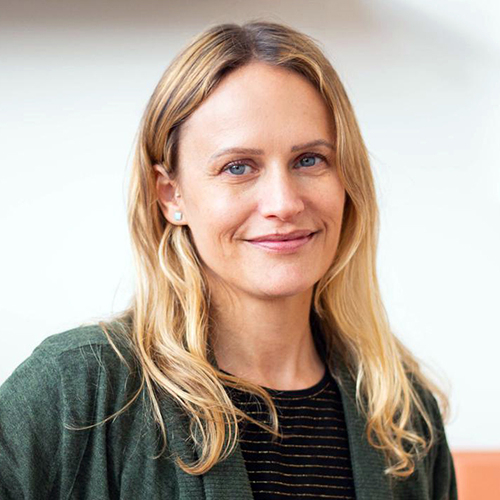
Decision Making and Psychiatric Medications in Pregnancy and Lactation

Rebecca Feldman is Certified Nurse Midwife, and Psychiatric Nurse Practitioner who practices in a dual role in the field of reproductive psychiatry. She is the founder and director of Brooklyn Parent Support, a group mental health practice providing group and individual therapy and medication management. Rebecca is a graduate of Frontier Nursing University in midwifery, and New York University with a Post Master’s in Psychiatric Nursing. She has practiced perinatal psychiatry at the Motherhood Center of New York, and Zucker Hillside Hospital. As a midwife, she created a mental health program housed within the Department of Obstetrics and Gynecology at Woodhull Medical Center, a large public hospital in Brooklyn. She is currently an adjunct professor at New York University, providing lectures to the midwifery and psychiatric nurse practitioner programs. A frequent guest speaker on the topic of promoting access to parental mental health care, she has recently presented for the American College of Nurse-Midwives, the National Perinatal Association, and Postpartum Support International.
Perinatal mood and anxiety disorders are the most common complication of pregnancy. Midwives have a key role to play in assisting clients with decision making around use of psychiatric medications in pregnancy and lactation. This presentation will explore client considerations around mental health in pregnancy and postpartum, including the risks of untreated mental illness in these life phases. How midwives may counsel their clients as well as when to refer them for mental health care, will be an additional element of this presentation.
Common Post-partum Mood and Anxiety Disorders will be described in detail as well as a summary of evidence-based treatment options. Following this part of the presentation, the main classes of psychiatric medications commonly used in pregnancy and lactation will be described. Considerations for the use of SSRIs, atypical antipsychotics, mood stabilizers and benzodiazepines will be discussed.
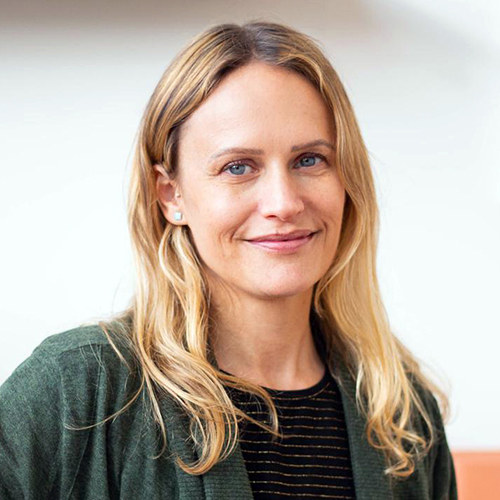
View Details / Enroll

Disparities in Perinatal Care and Outcomes Among Women With Disabilities: An Urgent Call for Inclusion

Dr. Monika Mitra is the Nancy Lurie Marks Associate Professor of Disability Policy, and Director of the Lurie Institute for Disability Policy at Brandeis University’s Heller School for Social Policy and Management. Her research focuses on the health and wellbeing of people with disabilities and their families. She co-leads the Community Living Policy Center which is aimed at improving policies and practices that advance community living outcomes for people with disabilities and the National Research Center for Parents with Disabilities which is focused on addressing knowledge gaps regarding the needs of parents with diverse disabilities and their families. Dr. Mitra is co-editor-in-chief of the Disability and Health Journal. Prior to joining Brandeis, she was Associate Professor in the Department of Family Medicine and Community Health at the University of Massachusetts Medical School.
In the last ten years, an emerging body of evidence has documented the disparities in perinatal care, quality, and outcomes of women with disabilities.
This presentation will provide an in-depth examination of the unmet needs and barriers to perinatal care among women with different disabilities. It will highlight disparities in pregnancy and birth outcomes among women with and without disabilities. It will also outline recommendations to women with disabilities who are considering pregnancy and examine the experiences and needs of health care practitioners in providing obstetric care to women with disabilities.
The findings for this presentation are informed by analyses of nationally representative surveys, population-based administrative data, and from interviews with disabled women and obstetric care clinicians from the United States. We will include findings on the perinatal health of women with physical disabilities, women who are deaf and hard of hearing, and women with intellectual and developmental disabilities.
This presentation will shed light on the unmet needs and barriers to care of women with disabilities during pregnancy and childbirth and emphasize the urgent need for policy and practice recommendations to improve perinatal care of women with disabilities.
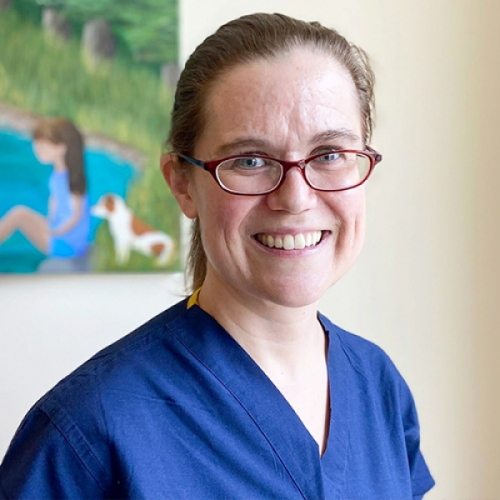

Sarah Reece-Stremtan MD is an associate professor of pediatrics and anesthesiology at the George Washington University in Washington DC. Her clinical practice is centered at Children's National Hospital in DC, where she works as a pediatric anesthesiologist, acute pain physician, and acupuncturist. She has particularly strong interests in perioperative preservation of breastfeeding, with specific expertise in safety of anesthesia and analgesia medications used by breastfeeding mothers. She has spoken at Congressional Briefings on the need for enhanced research into the use of medications by breastfeeding and pregnant women, and sits on working group #4 within a federal task force developed to enhance Research Specific to Pregnant Women and Lactating Women (PRGLAC).
She has long been involved with the Academy of Breastfeeding Medicine, authoring multiple clinical protocols, chairing various committees, and most recently serving as Treasurer for 2 terms after 5 years as a member of the Board of Directors.
Many women plan to use various pain medications during labour, with epidural analgesia being the most common type of pain relief utilized in many North American hospitals. Medications used for pain relief during labour cross transplacentally to the infant, with varying effects demonstrated on infants and mothers with regards to breastfeeding. Here we will take a closer look at what is involved in pain transmission signals, the medications that help with pain relief during labour, and the effects of these medications on initiation of breastfeeding. We will discuss issues relating to cesarean delivery, and we will also spend a little time at the end reviewing considerations around general anesthesia for breastfeeding mothers.










